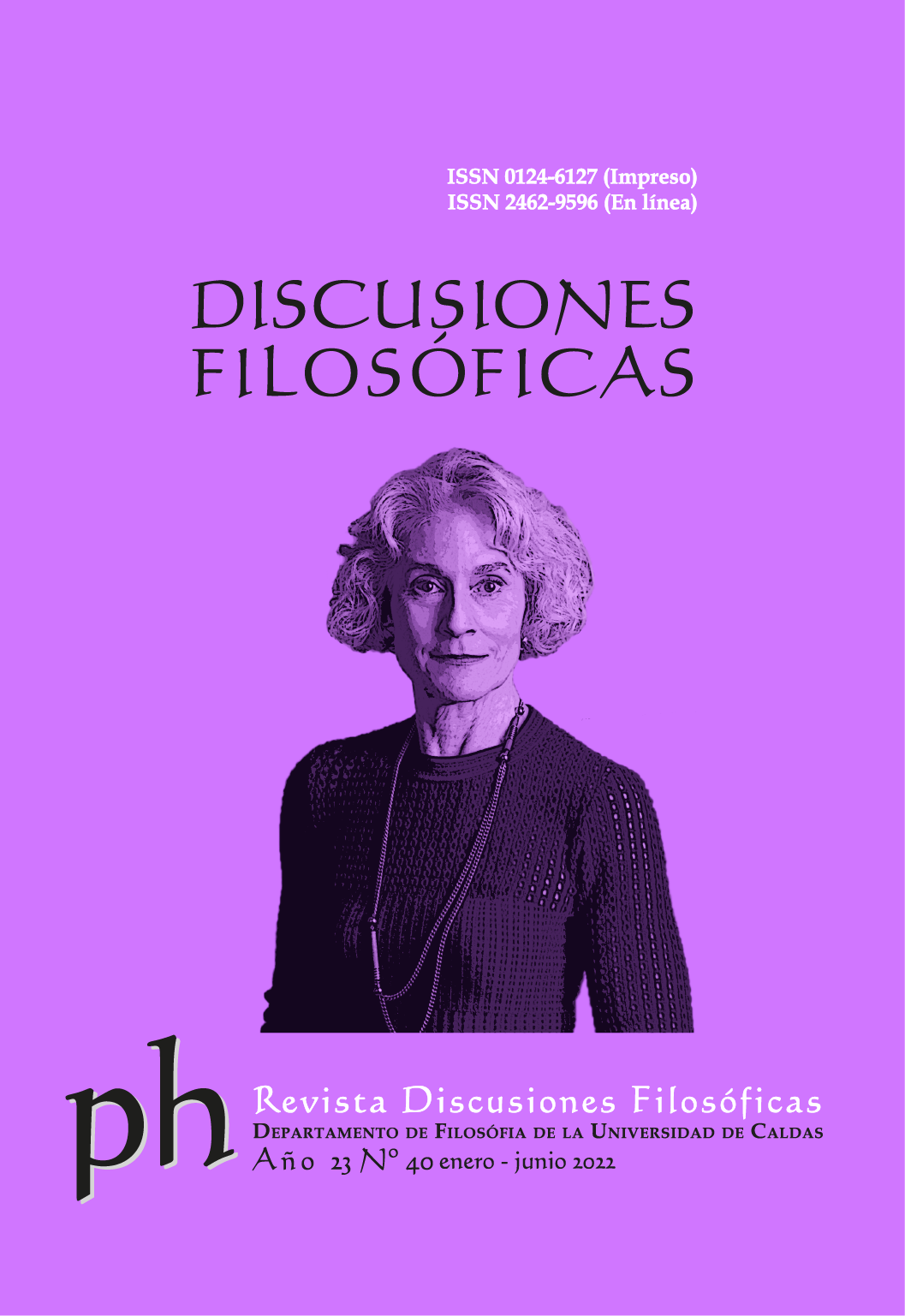Autores/as
Resumen
El presente escrito argumenta que en la propuesta intuicionista desarrollada en Haidt (2001) no se distingue claramente una propuesta intuicionista de una propuesta emotivista. Esto supone un problema epistémico, pues la primera se comprende desde una perspectiva cognitivista,
mientras que la segunda lo es desde una postura no cognitivista en el ámbito moral. Hay por tanto una tensión en los presupuestos de la propuesta intuicionista haidtiana, que inter alia Huemer (2005) discute desde una perspectiva racionalista moderada. Este escrito sostiene que el
intuicionismo no supone un compromiso con la discusión entre objetivismo y subjetivismo moral, permitiendo de este modo una aproximación que permita un diálogo fructífero entre el emotivismo, el intuicionismo y el racionalismo en el estatus epistémico del juicio moral. Ello permite abordar la arista del estatuto moral desde una posición racionalista moderada, abierta a los aportes interdisciplinares y de este modo al naturalismo no reduccionista. Este análisis permite afirmar que sí hay verdades morales, siendo el foco de discusión objetivismo-subjetivismo más bien sobre el acceso a ellas, que del cuestionamiento de su existencia.
Palabras clave:
Citas
Andrews, K. et al. “In Re Non Human Rights Project” Nonhuman Rights Project (NhRP) New York County Clerk’s Index Nos. 162358/15y150149/16 Proposed brief by amici curiae philosophers in support of the petitioner appellant. 2018. https://bit.ly/2HkYWC5
Beauchamp, Tom L. y Wobber, Victoria. “Autonomy in chimpanzees.” Theoretical Medicine and Bioethics, 35(2), 2014: 117-132.
Cleckley, H. The mask of sanity. C. V. Mosby. 1955.
Corradini, A., Galvan, S. y Lowe, E.J. (Eds.). Analytic Philosophy without Naturalism (1st ed.). Routledge. 2006.
Damásio, A. Descartes’ Error: Emotion, Reason and the Human Brain. Avon Books. 1995.
D’Arms, J. and D. Jacobson. “Sentimentalism and Scientism”. En Moral Psychology and Human Agency, ed. J. D’Arms and D. Jacobson, 253-78. Oxford University Press. 2014.
Egler, M. “Testing for the phenomenal: Intuition, metacognition, and philosophical methodology”. Mind & Language. pp. 1-19. 2019.
Goodman, N. Fact, Fiction, and Forecast. Harvard University Press. 1955.
Haack, Susan. “Seis signos de cientismo”. Discusiones Filosóficas, 11(16), 2010: 13-40.
Haidt J. “The emotional dog and its rational tail: a social intuitionist approach to moral judgment.” Psychological Review, 108(4), 2001: 814-834. https://doi.org/10.1037/0033-295x.108.4.814
Hare, R. D. Without Conscience. Guilford Press. 1993.
Hare R. M. Sorting Out Ethics. O.U.P. 1997.
Huemer, M. Ethical Intuitionism. Palgrave Macmillan. 2005.
Hume, D. A treatise of human nature. Penguin, 1969. (Publicado originalmente en 1739-1740)
Johnson, Robert and Cureton, Adam. “Kant’s moral philosophy,” The Stanford Encyclopedia of Philosophy (Fall 2017 Edition), Edward N. Zalta (Ed.), Disponible en https://plato.stanford.edu/archives/fall2017/entries/kant-moral/
Jones, K. y Schroeter, F. (Eds.) The Many Moral Rationalisms. Oxford University Press. 2018.
Kohlberg. L. “From is to ought: How to commit the naturalistic fallacy and get away with it in the study of moral development”. En T. Mischel (Ed.), Cognitive development and epistemology (pp. 151-235). New York: Academic Press. 1971.
Lowe, J. “Rational selves and freedom of action” En Corradini, A., Galvan, S., & Lowe, E.J. (Eds.). pp. 163-177. 2006.
Lukasiewicz, Jan. “O logice trbjwarto§ciowej [On three-valued logic]”, Ruch Filozoficzny 5 (1920) 1920: 169–171.
Marturano, A. “Non-Cognitivism in Ethics”. En International Encyclopedia of Philosophy. https://iep.utm.edu/non-cogn/. 2010.
May, J. “The Limits of Emotion in Moral Judgment” En Jones, K. & Schroeter, F. (Eds.) 2018: 286-306.
Nichols, S. Sentimental Rules: On the Natural Foundations of Moral Judgment. Oxford University Press. 2004.
Nicoli, S. The Role of Intuitions in Philosophical Methodology. Palgrave Macmillan. 2016.
Øyvind Rabbås, Eyjólfur K. Emilsson, Hallvard Fossheim, y Miira Tuominen (eds.) The Quest for the Good Life: Ancient Philosophers on Happiness. Oxford University Press. 2015.
Prinz, J. The Emotional Construction of Morals. Oxford University Press. 2007.
Rawls, J. A Theory of Justice. Cambridge, Harvard University Press. 1971.
Reichenbach, H. Elements of Symbolic Logic, New York, McMillan. 1947.
Rosati, Connie S. “Moral Motivation”, The Stanford Encyclopedia of Philosophy (Winter 2016 Edition), Edward N. Zalta (ed.), URL =
stanford.edu/archives/win2016/entries/moral-motivation/>. 2016.
Shields, K. “Moral internalism, amoralist skepticism and the factivity effect” Philosophical Psychology, 2016: 29:8, 1095-1111.
Sirkel, R. “The Quest for the Good Life: Ancient Philosophers on Happiness”. Notre Dame Philosophical Reviews. 2016. https://bit.ly/3Db1tOj
Smith, M. “Three kinds of moral rationalism” En Jones, K. & Schroeter, F. (Eds.) 2018: 48-69.
van Roojen, Mark. “Moral Cognitivism vs. Non-Cognitivism”, The Stanford Encyclopedia of Philosophy (Fall 2018 Edition), Edward N. Zalta (ed.), URL = https://plato.stanford.edu/archives/fall2018/entries/moral-cognitivism/
Williams, B. Rationalism. En P. Edwards (Ed.), The encyclopedia of philosophy (Vols. 7-8, 1967: 69-75). Macmillan.

 PDF
PDF
 FLIP
FLIP
 Perfil Google Scholar
Perfil Google Scholar






















